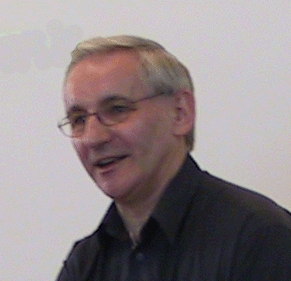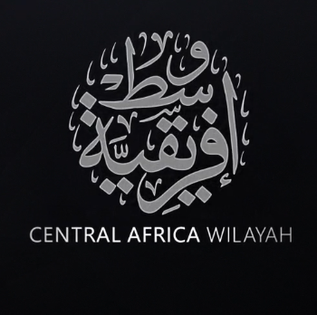Related Research Articles

Botswana, officially the Republic of Botswana, is a landlocked country in Southern Africa. Botswana is topographically flat, with up to 70 percent of its territory being the Kalahari Desert. It is bordered by South Africa to the south and southeast, Namibia to the west and north, and Zimbabwe to the northeast. Its border with Zambia to the north near Kazungula is poorly defined due to being in the midst of the Zambezi River. This border with Zambia is, at most, a few hundred metres long.

After independence in 1964 the foreign relations of Zambia were mostly focused on supporting liberation movements in other countries in Southern Africa, such as the African National Congress and SWAPO. During the Cold War Zambia was a member of the Non-Aligned Movement.

The population of South Africa is about 58.8 million people of diverse origins, cultures, languages, and religions. The 2011 South African census was the most recent held and the next will be in 2021.

Christiaan Frederick Beyers Naudé was a South African cleric, theologian and the leading Afrikaner anti-apartheid activist. He was known simply as Beyers Naudé, or more colloquially, Oom Bey.

Slavery in Sudan began in ancient times, and recently had a resurgence during the Second Sudanese Civil War (1983-2005). During the Trans-Saharan slave trade, many Nilotic peoples from the lower Nile Valley were purchased as slaves and brought to work elsewhere in North Africa and the Orient by Nubians, Egyptians, Berbers and Arabs.

William Vernell Wood Sr. was an American professional football player and coach. He played as a safety with the Green Bay Packers in the National Football League (NFL). Wood was an eight-time Pro Bowler and a nine-time All-Pro. In 1989, Wood was elected to the Pro Football Hall of Fame.

Joseph Echols Lowery was an American minister in the United Methodist Church and leader in the civil rights movement. He founded the Southern Christian Leadership Conference with Martin Luther King Jr. and others, serving as its vice president, later chairman of the board, and from 1977 to 1997 its president. Lowery participated in most of the major activities of the civil rights movement in the 1950s and 1960s, and continued his civil rights work into the 21st century. He was called the "Dean of the Civil Rights Movement."

Irving Hexham is an English-Canadian academic who has published twenty-three books and numerous articles, chapters, and book reviews. Currently, he is Professor of Religious Studies at the University of Calgary, Alberta, Canada, married to Karla Poewe who is Professor Emeritus of Anthropology at the University of Calgary, and the father of two children. He holds dual British and Canadian citizenship.

The Day of the Vow was a religious public holiday in South Africa. It is an important holiday for Afrikaners, originating from the Battle of Blood River on 16 December 1838.

Christianity in Africa arrived in Egypt in the middle of the 1st century. By the end of the 2nd century it had reached the region around Carthage. In the 4th century, the Aksumite empire in modern-day Eritrea and Ethiopia became one of the first regions in the world to adopt Christianity as an official religion and the Nubian kingdoms of Nobatia, Makuria and Alodia followed two centuries later. Important Africans who influenced the early development of Christianity include Tertullian, Perpetua, Felicity, Clement of Alexandria, Origen of Alexandria, Cyprian, Athanasius and Augustine of Hippo.
The Christian Institute of Southern Africa was an ecumenical progressive organisation founded by English and Afrikaans clergy in December 1963 to unite South African Christians against apartheid. The CI became deeply involved with black activists such as Steve Biko, and was banned by the state in 1977.

South Africa, officially the Republic of South Africa (RSA), is the southernmost country in Africa. With over 59 million people, it is the world's 23rd-most populous nation and covers an area of 1,221,037 square kilometres. South Africa has three capital cities: executive Pretoria, judicial Bloemfontein and legislative Cape Town. The largest city is Johannesburg. About 80% of South Africans are of Black African ancestry, divided among a variety of ethnic groups speaking different African languages. The remaining population consists of Africa's largest communities of European, Asian, and Multiracial ancestry.

The Southern Kings were a South African professional rugby union team that competed in Super Rugby and Pro14. They were based in Port Elizabeth in the Eastern Cape province and played their home matches at Nelson Mandela Bay Stadium. They were created in 2009, and had their first match against the British & Irish Lions during their 2009 tour. After competing in Super Rugby in 2013, 2016 and 2017, they joined Pro14 prior to the 2017–18 season, along with the Cheetahs.

South Sudan, officially known as the Republic of South Sudan, is a landlocked country in East-Central Africa. It is bordered to the east by Ethiopia, to the north by Sudan, to the west by the Central African Republic, to the southwest by Democratic Republic of the Congo, to the south by Uganda and to the southeast by Kenya.

Albertus (Albert) Stephanus Geyser was a South African cleric, scholar and anti-apartheid theologian. Geyser became an outcast in the white Afrikaner community because of his theological opposition to apartheid and to the Broederbond, the secret male Calvinist organisation that covertly steered South African politics during the apartheid era. He obtained master's and doctoral degrees cum laude, specializing in Greek and Latin. At the age of 27 he was appointed lecturer, and a year later, professor in the Theological Faculty of the Nederduitsch Hervormde Kerk at the University of Pretoria. Geyser contributed to the first annotated edition (1953–1958) of the Bible in Afrikaans, founded the Christian Institute, and was the first South African to be elected as a member of Studiorum Novi Testamenti Societas.

The Pro Patria Medal is a South African military campaign medal which was instituted by the Republic in 1974. It was awarded to members of the South African Defence Force for service in an operational area, as designated by the Minister of Defence or for engagement in armed combat with the enemy.

The Central Africa Province is an administrative division of the Islamic State of Iraq and the Levant (ISIL), a Salafi jihadist militant group and unrecognised Quasi-state. As result of a lack of information, the foundation date and territorial extent of the Central Africa Province are difficult to gauge, while the military strength, and activities of the province's affiliates are disputed. According to pro-ISIL media and some other sources, the Central Africa Province has a presence in the Democratic Republic of the Congo as well as Mozambique. In September 2020, during the insurgency in Cabo Delgado, IS-CAP shifted its strategy from raiding to actually occupying territory, and declared the Mozambican town of Mocímboa da Praia its capital.
Protea vogtsiae, also known as the Kouga sugarbush, is a small flowering shrub of the genus Protea within the family Proteaceae, which is only found growing in the wild in the southern Cape Region of South Africa.
References
- ↑ "Christian Institute of Southern Africa (and Christian Institute Fund)". Mundus. Retrieved 7 August 2020.
- ↑ Pro Veritate Vol.1 № 12 (April 1963)
- ↑ Digital Innovation South Africa
- ↑ "Media feel pressure as divisions widen on the role of journalists in South Africa". The Coversation. 18 October 2015. Retrieved 7 August 2020.